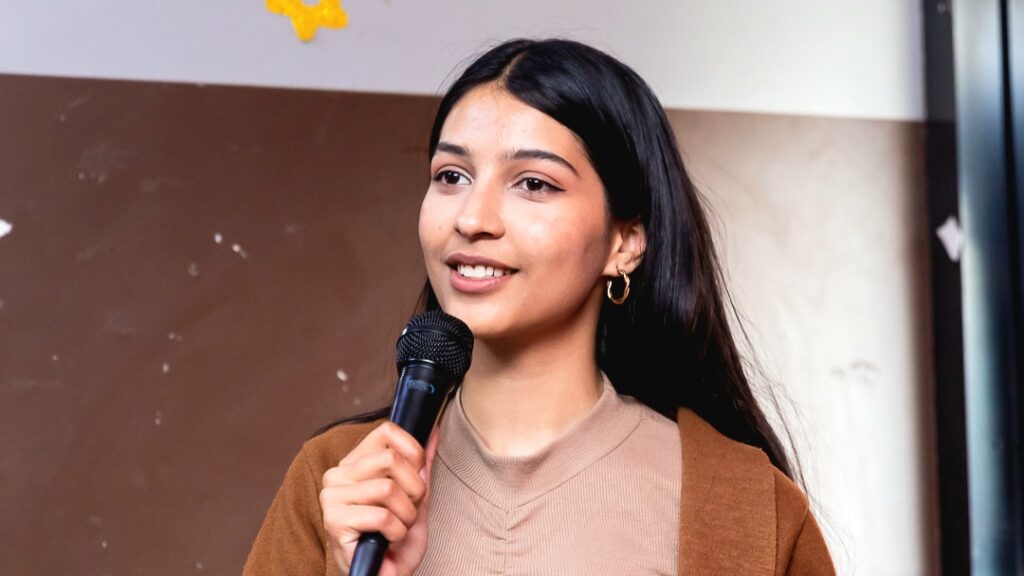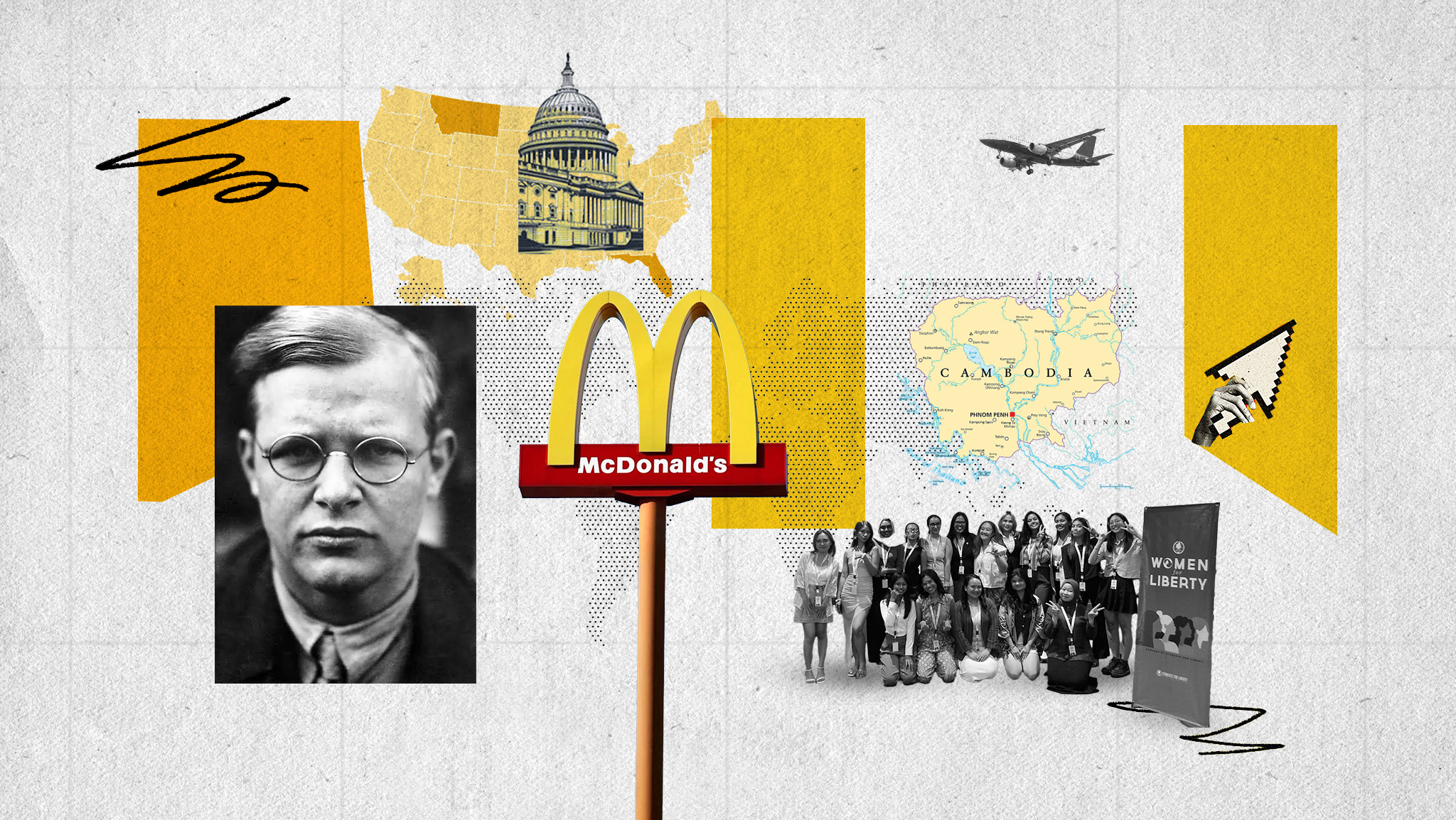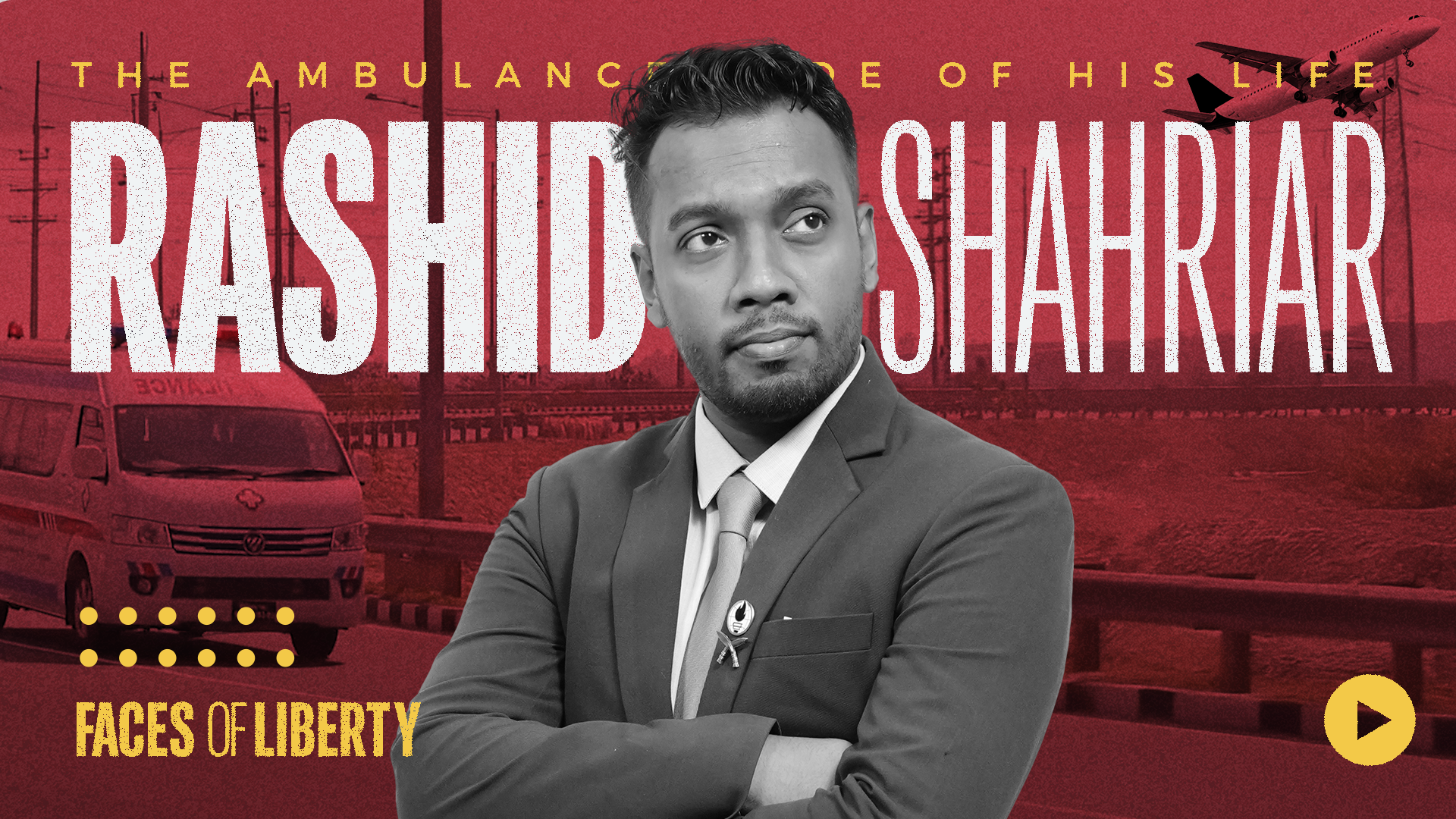Amidst political violence and injustice in Nepal, she has organized meaningful, peaceful, thought-provoking events … and will continue to.
By Trevor Kraus, Managing Editor, Students For Liberty
I spoke to Prasidika Dhungana a few hours after Nepalese police opened fire on a crowd of people in Kathmandu.
Prasidika lives there, and we had scheduled our conversation before we knew what would happen on that Monday, September 8, 2025.
She warned me before we talked: “Today there was a Gen Z protest here in Nepal against corruption and the ban on social media, and sadly, 14 youths, including some students who were in college dress, lost their lives. The situation is quite tough, and my heart is still there …”
She also suggested that we speak via Google Meet instead of WhatsApp, one of more than 20 social media sites that had been banned. “As far as social media goes,” she said, “we’re down to just TikTok now available.”
I could hear the heartbreak in her voice, the hesitance with which she spoke, as the death toll climbed eventually to 19.
“This is our reality … but,” she continued, her resolve beginning to grow anew, “this is also why we fight for liberty.”
Her voice grew stronger still when we talked about the events she had recently hosted to combat the cancer of government censorship.
The first, in February of 2025, took place just after a bill was introduced that would empower the government to prohibit people from liking and sharing social media posts. It would also empower the government to punish the writer of any social media post deemed against “the national interest” with jail or a fine of up to $3,600.
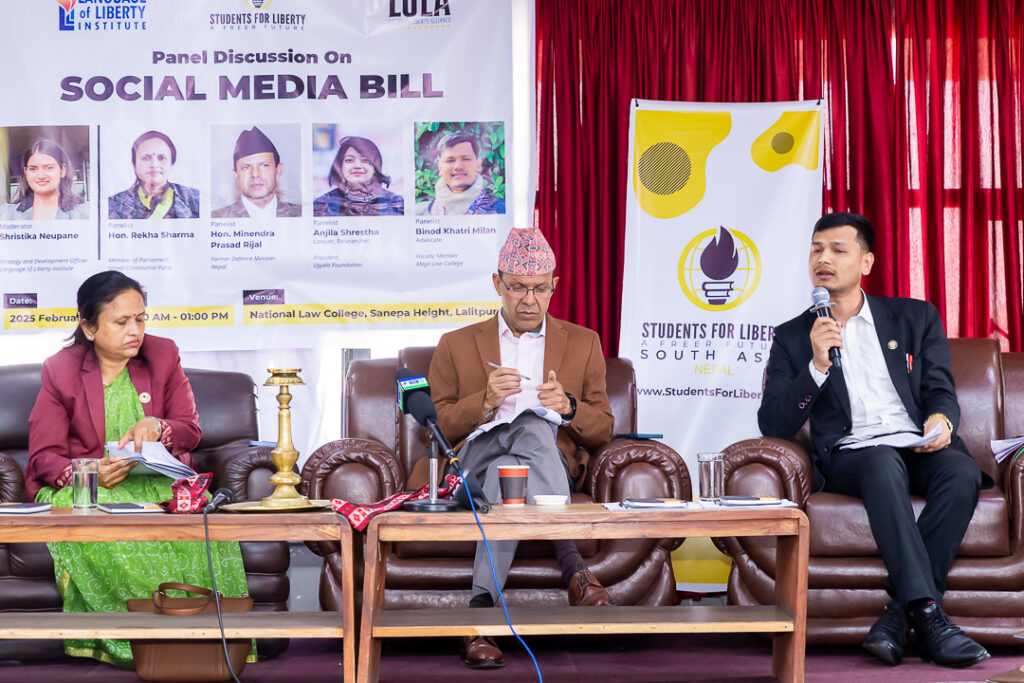
The panel, at the National Law College in Lalitpur, Nepal, provided a platform for experts, policymakers, and legal professionals to examine the bill’s potential impact on digital rights and government overreach. Among the speakers were a Member of Parliament and the country’s former Defense Minister.
Despite the controversy surrounding that bill and the danger of discussing it openly, Prasidika’s event brought 85 people to hear the panelists debate, among other things, how the bill’s key term, “national interest,” could be misinterpreted and misused.
They also pilloried the bill’s justification: that social media platforms don’t pay enough in taxes. And panelists agreed that the vague language and sweeping restrictions would silence dissent, discourage creativity, and harm digital innovation.
Prasidika, a 21-year-old law student who joined Students For Liberty in 2023, organized the event in collaboration with LOLA: the Ladies of Liberty Alliance.
“SFL gave us the marketing platform and funding, and provided a space where people can express their ideas,” she said, “and we took it from there. It was rewarding as an event, because it was so successful … but when we realized that eventually, the government was going to proceed in banning social media, whether the bill passed or not, that was really humbling.”
Humbling — but not discouraging.
A few months later, in June 2025, the newly branded Nepal Policy Forum hosted another event: this time, a discussion called Democracy and Monarchy. More than 150 people came out to hear two pro-monarchy voices, including a former minister, and two lawyers who supported the democracy side.
Prasidika said the event “reaffirmed the value of open, youth-led dialogue in defending democratic ideals,” and that her key takeaway from the discussion was the idea that Nepal’s future as a republic, along with its commitment to liberal policies, hinges on proactive youth engagement and well-informed leadership.
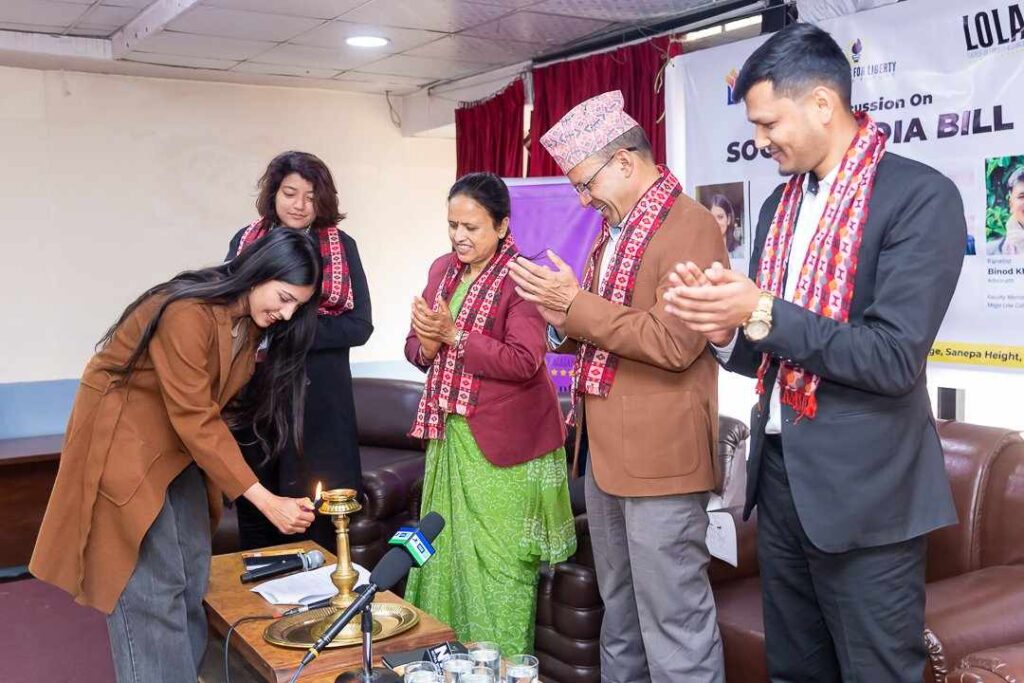
People like Prasidika, all over the world, are joining Students For Liberty and showcasing the power of precisely that: leadership from engaged, principled young people. And Prasidika in particular is proving that no matter how painful the road to liberty might be, its ideals are forever worth fighting for.
“It was devastating,” she said about hearing the news that September morning. “I was, and I guess I still am, about to cry.”
But Prasidika Dhungana is not about to be deterred. She’s planning a still larger version of the Policy Forum, including satellite events in two major districts before a grand national conference.
“What else could I do?” she concluded, “but gather myself and realize: It’s time to fight even harder.”
